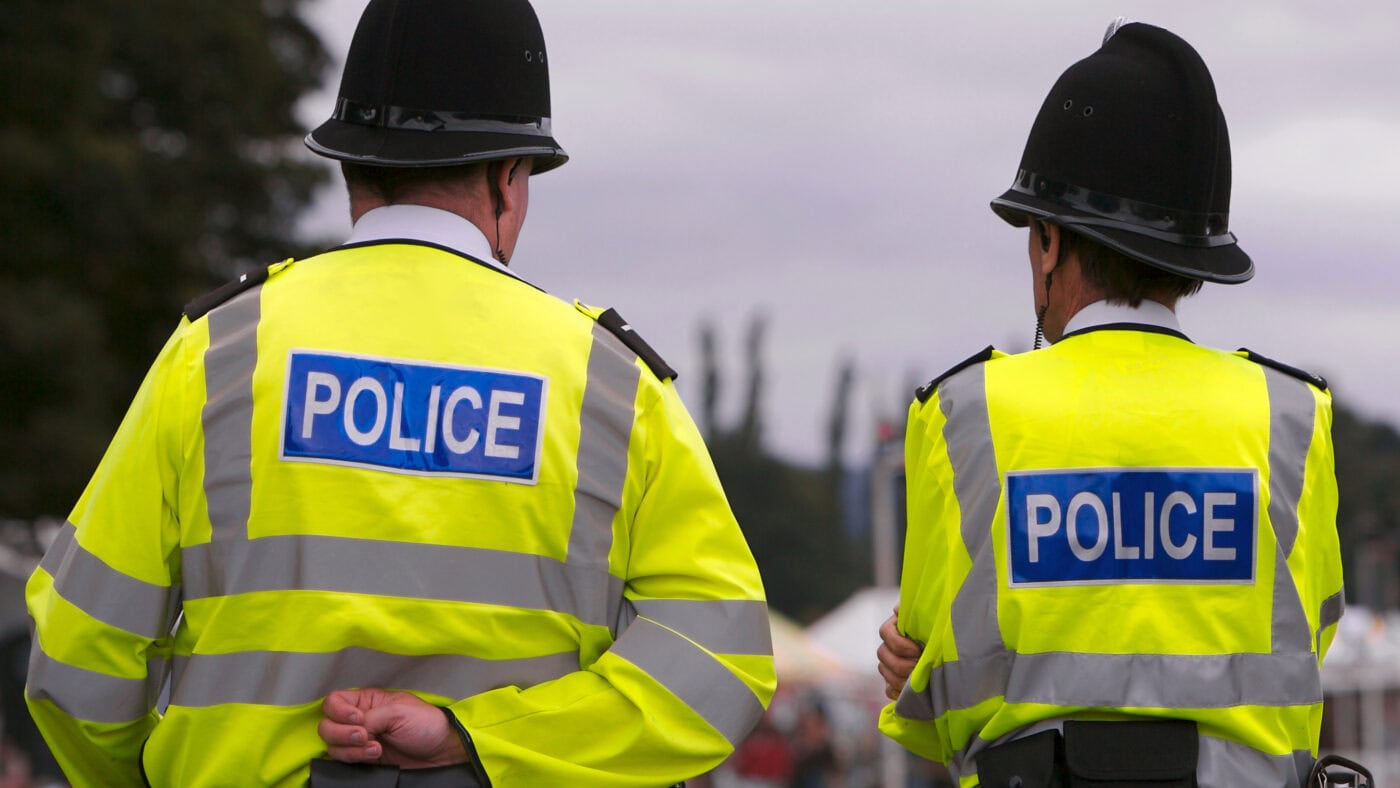‘It’s a free country,’ we used to say to each other when I was growing up in the 1970s. Usually, it was an indication of tolerant and good-humoured derision that had been preceded by someone else expressing some eccentric taste or allegiance. ‘I support Arsenal,’ or, ‘I’m getting a pair of corduroy trousers.’ Perhaps even, ‘I enjoy listening to Barry Manilow.’
Beneath the joshing was a genuine patriotic pride that we lived in a place where the police would arrest you not for expressing an opinion but for genuine crime, such as theft or violence.
But is this still a free country? The Times reports:
When Maxie Allen complained to his daughter’s primary school about the recruitment process for a new head teacher, he hoped it would result in more openness and transparency. Instead, six uniformed officers from Hertfordshire police were sent to arrest Allen and his partner after the school objected to them sending numerous emails and to their criticisms, including ‘disparaging’ comments on a parents’ WhatsApp group.
Last November, The Daily Telegraph reported:
A Telegraph journalist is facing a ‘Kafkaesque’ investigation for allegedly stirring up racial hatred in a social media post last year. Allison Pearson, an award-winning writer, has described how two police officers called at her home at 9.40 am on Remembrance Sunday to tell her she was being investigated over the post on X, formerly Twitter, from a year ago.
How many more such cases go unreported? It doesn’t need a prosecution for there to be a ‘chilling effect’ on free speech. Maxie Allen is a producer on Times Radio. Allison Pearson is a prominent Daily Telegraph columnist. So in that sense, they are lucky. They are in a good position to persuade their employers to take up their cause – to rely on an acceptance that they are not crazed hate-mongers seeking to incite violence.
We should rely on a country where the authorities uphold rather than threaten freedom of expression. We pride ourselves on our police not being a Gestapo, or a Stasi or the hundred and one other variants from Africa, Asia and Latin America.
It is important not to drift into hyperbole. I have just read a distressing account of Uday Al Rabbay – a young man in Gaza who was kidnapped, tortured, murdered and his body left on his family’s doorstep after protesting against Hamas. That is the way authorities deal with dissent on much of our planet. We are many miles from that. But we don’t want to move an inch towards it. In Hertfordshire and Essex, that has happened.
That is the greatest concern. Though the subsidiary point about resources is also perfectly valid. While the cops are busy descending on Maxie Allen and Allison Pearson, they are ‘too busy’ to bother with shoplifting or the theft of a bike or mobile phone – even when the culprit can be identified.
In Scotland, the situation is even worse. Last year, the Hate Crime and Public Order (Scotland) Act took effect. The police are obliged to respond to transphobia and an array of other thought crimes committed anywhere, including in the family home. Children can report their parents, in a creepy nod to totalitarian horrors.
Most crime is ‘hate crime’ when you think about it. The law should be applied equally in a robust and practical manner without seeking windows into the soul. ‘Non-crime hate incidents’ are still more nonsensical. Yet the prospects of a Government led by Keir Starmer stripping away such absurdities from the statute books seem remote.
That does not mean the situation is hopeless. Police and Crime Commissioners (PCC) don’t decide the law. But they do set local policing priorities within a Police and Crime Plan. Sometimes their role is subsumed into a directly elected Mayor – as applied in London and Greater Manchester. Still, they have authority across England and Wales with a democratic mandate to hold the police to account. They don’t have the power of arbitrary arrest – instructing the police who to arrest or release. Nor should they. However, they can set a framework that reflects the public interest.
Should they feel the chief constable is failing to follow the plan that has been set, there is the power of hire and fire to back it up. Thus far, we have seen consensus rather than confrontation. A quiet word here and there. This has doubtless been of some benefit. Yet it is disturbing that the PCCs have failed to uphold the protection of free speech as an explicit policy. Instead, they have relied on the chief constables to make sure affairs are conducted in a reasonable and common sense manner. That evidently cannot be relied upon.
‘Society needs to condemn a little more and understand a little less,’ John Major once memorably remarked. Perhaps it is time that the PCCs ceased always being apologists for the police and instead faced up to some hard truths. Where the police are intruding on freedom of expression, that should be condemned rather than excused. My understanding is that the powers are there, but the PCCs have been too timid to use them. Naturally, the chief constables thus focus on following the directives of such unelected bodies as the College of Policing and the National Police Chiefs’ Council, giving in to the pressure to follow woke groupthink rather than fight crime.
It is easy to see why Reform UK are the beneficiaries of the resulting public exasperation.
Click here to subscribe to our daily briefing – the best pieces from CapX and across the web.
CapX depends on the generosity of its readers. If you value what we do, please consider making a donation.


